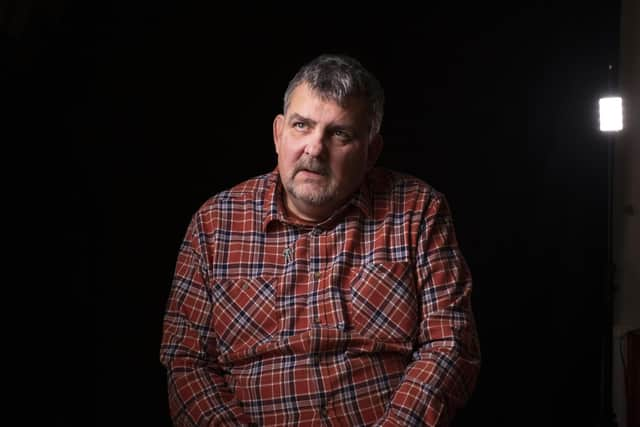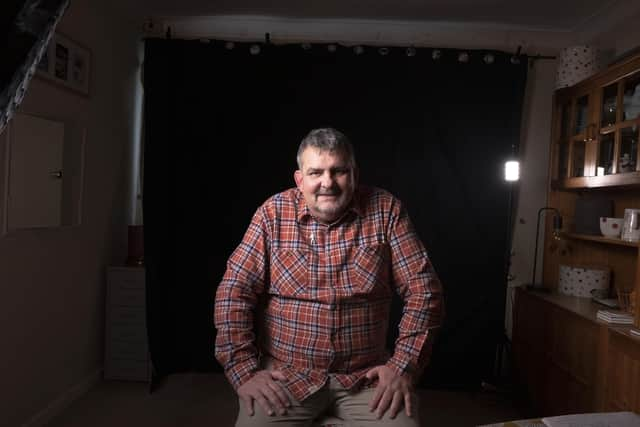Former teacher from Ossett in West Yorkshire with incurable prostate cancer on the impact of the illness and the importance of checking risk
and live on Freeview channel 276
However, by the time he sought medical attention in June 2021 after experiencing urinary problems, it was too late and a string of bad news followed. Danny had cancer that could be treated but not cured – it had metastasised beyond the prostate and into his bones.
“During the pandemic, I started to experience some urinary problems, being up a lot in the night,” Danny told the Yorkshire Evening Post. “Eventually, after a few attempts, I managed to make a doctors appointment in June 2021. I went and had a digital rectal exam, the doctor was sufficiently worried by that to send me for a blood test the very next day.
Advertisement
Hide AdAdvertisement
Hide Ad"The results came back, the MRI scan soon after that, biopsy soon after that, at each stage it was the worst possible result. The MRI showed concerns in my lymph nodes and my prostate itself, then the biopsy showed I had cancerous cells. I went for a bone scan and the bone scan revealed that the cancer was metastatic - it had progressed beyond the prostate, rendering it incurable, only treatable. That diagnostic journey was very difficult because at each stage, the outcome was the worst possible outcome.”


The cancer has changed Danny’s life in numerous ways and he is no longer able to teach in a classroom as he had done for many years. "I had an acute retention issue which means you can't wee,” he said. “I had to go to hospital and get a catheter and I've had to self-catheterise since then which is less than good. It does affect you. I'm also on hormone therapy which I started after the bone can which completely suppresses my testosterone production, which basically changes you as a human being, changes you as a male in ways that you can possibly imagine.
"That includes weight gain, difficulty concentrating, mood swings and loss of an aspect of your life. I had to give up work, eventually I was dismissed on the grounds of ill health and I understood why they'd done it. I haven't got any beef about that at all, they were very good to me but I just wasn't in a fit state to work, mentally, cognitively or physically. The situation wasn't compatible with being a classroom teacher at all.”
Perhaps the most heart-wrenching difficulty Danny lives with is an awareness of his limited life span. “Having a limited lifespan does something to your brain that doesn't go away,” he said. “I haven't slept the same since. I'm not saying I've been tossing and turning every night but I haven't been the same since.”
Advertisement
Hide AdAdvertisement
Hide AdStatistics provided by Prostate Cancer UK show that in 2020, 407 men were diagnosed with prostate cancer and 118 men died from it. Danny is now keen to raise awareness of the importance of men checking how at risk of prostate cancer they are.


"One of the things Prostate Cancer UK are pushing is their very quick risk checker, which is available on their website,” he said. “I didn't do that - if I'd done it, the outcome could have been different.”
Chiara de Biase is the director of support and influencing at Prostate Cancer UK and is part of the campaign to get men checking their risk. “In the cancer space, everything is about signs, symptoms and checks, when actually, for prostate cancer, when it's curable it doesn't have symptoms,” she said. “That's the really important message. It's all about awareness of risk. We have developed an online risk checker that is so simple but just having a simple tool doesn't make a difference if we're not getting in front of the right men. The right men for me are the working class men, we know deprivation comes into it. Some of these men are not going to see their GP because they've got no symptoms so we're flipping that on its head - don't wait for symptoms, do the risk checker.”
